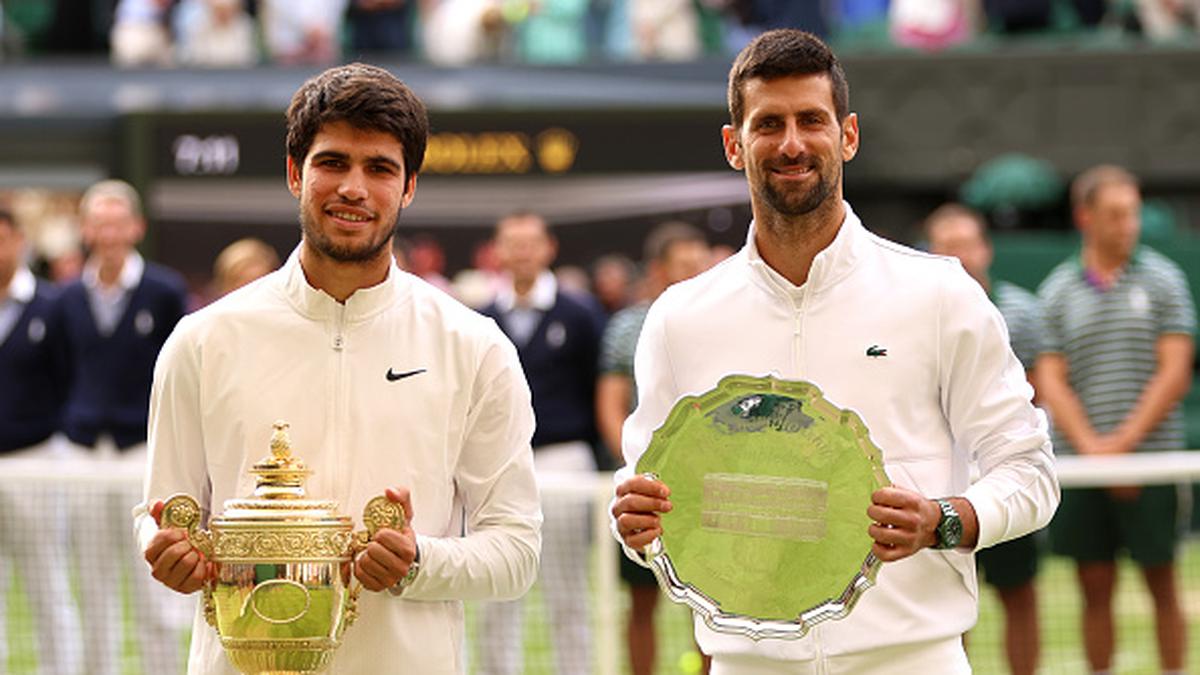Historical Significance of Men’s Wimbledon Final

The Men’s Wimbledon Final, the championship match of the Wimbledon tennis tournament, holds a significant place in the annals of sports history. Since its inception in 1877, it has witnessed countless iconic moments and legendary players, shaping the tournament into a cultural and sporting phenomenon.
Evolution of the Tournament
The Wimbledon tournament evolved from humble beginnings as a garden party with a tennis tournament. Over the years, it has undergone several transformations, including the introduction of the Centre Court in 1922 and the shift to professional play in 1968. These changes have contributed to the tournament’s enduring legacy and global appeal.
Amidst the fierce competition of the Men’s Wimbledon final, one couldn’t help but draw parallels to the electrifying performance of Jacoby Jones on the gridiron. His unmatched speed and agility mirrored the precision and power displayed on the tennis court.
As the players battled for victory, the spirit of Jones served as a reminder that excellence transcends boundaries, uniting athletes in their relentless pursuit of triumph.
Iconic Moments
The Men’s Wimbledon Final has been the stage for some of the most memorable moments in tennis history. From Bjorn Borg’s five consecutive victories in the 1970s to Roger Federer’s record-breaking eight titles, the tournament has produced countless unforgettable matches and thrilling finishes.
Legendary Players
The Wimbledon Final has also showcased the talents of some of the greatest players to ever grace the sport. From the likes of Fred Perry and Rod Laver to Pete Sampras and Rafael Nadal, the tournament has played a pivotal role in shaping the careers of legendary athletes and inspiring future generations of tennis players.
The men’s Wimbledon final is set to be a thrilling affair, with two of the most promising young players in the world, Carlos Alcaraz and Jannik Sinner, facing off for the title. Alcaraz has been in impressive form this season, winning the Madrid Open and reaching the semi-finals of the French Open.
He is known for his aggressive style of play and powerful groundstrokes. Sinner, on the other hand, is a rising star who has already reached the quarter-finals of a Grand Slam tournament. He is a talented all-around player with a strong serve and forehand.
Both players will be looking to make a statement in this year’s Wimbledon final, and it is sure to be a match that will be remembered for years to come. Carlos Alcaraz slams his way to Wimbledon final.
Cultural and Sporting Importance
Beyond its sporting significance, the Wimbledon Final has also become a cultural phenomenon. The tournament is steeped in tradition and etiquette, with its signature white uniforms and strawberries and cream. It has captured the imagination of millions worldwide, transcending the boundaries of tennis and becoming a symbol of British sporting excellence.
Strategies and Tactics for Success
Winning the Men’s Wimbledon Final requires a combination of strategic prowess and tactical execution. Successful players have mastered the art of serve and volley, baseline play, and mental fortitude, adapting their approach to the strengths and weaknesses of their opponents.
Serve and Volley, Men’s wimbledon final
Serve and volley is a classic Wimbledon strategy that involves serving aggressively and following it up with a quick approach to the net. This tactic puts pressure on opponents, forcing them to respond with deep returns or risk being lobbed. Legendary players like Pete Sampras and Roger Federer have excelled at serve and volley, winning multiple Wimbledon titles with this aggressive style.
Baseline Play
In contrast to serve and volley, baseline play involves staying at the back of the court and engaging in extended rallies. This strategy requires excellent groundstrokes, footwork, and endurance. Players like Rafael Nadal and Novak Djokovic have dominated Wimbledon using their exceptional baseline play, patiently waiting for their opponents to make mistakes.
Mental Fortitude
Beyond technical skills, mental fortitude is crucial in the high-pressure environment of the Wimbledon Final. Players must remain focused, composed, and resilient under intense scrutiny. They must be able to handle the weight of expectations, overcome setbacks, and execute their game plan under extreme pressure. Champions like Andy Murray and Stefan Edberg have demonstrated exceptional mental toughness in their Wimbledon triumphs.
Impact of Technology and Equipment: Men’s Wimbledon Final

Technology and equipment have profoundly influenced the Men’s Wimbledon Final, shaping the style of play and the overall competitiveness of the tournament.
Over the years, there has been a significant evolution in racquets, strings, and court surfaces, each contributing to the transformation of the game.
Evolution of Racquets
Racquets have become larger, lighter, and more powerful, allowing players to generate greater spin and power. The use of graphite and composite materials has increased racquet stiffness, enabling players to hit the ball with more control and accuracy.
- Larger head sizes provide a larger sweet spot, making it easier for players to hit the ball cleanly.
- Lighter racquets allow for faster swing speeds, generating more power and spin.
- Stiffer racquets offer greater control and precision, enabling players to place shots with more accuracy.